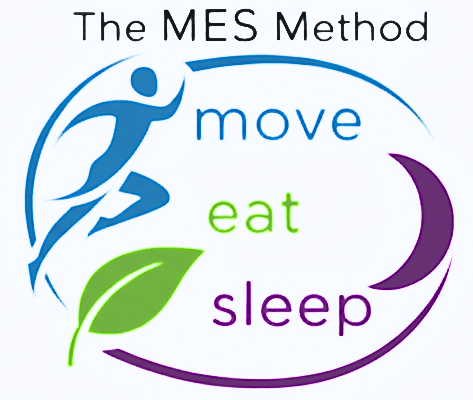Unlocking Your Potential: The Power of Sleep for Weight Loss and Well-being
When I was on my own journey from 120kg to a healthier 83kg, I quickly learned that transforming my body wasn’t just about what I ate or how hard I worked out. It was deeply connected to how well I slept. It’s a game-changer, truly. Like many of you, I probably used to see sleep as a luxury or something that just happens. But for anyone serious about weight loss, fitness, and overall well-being, it’s a non-negotiable cornerstone.
You might already be feeling it: that deep understanding that sleep isn’t just about resting your eyes. It’s about full-body recovery, mental sharpness, and having the energy to crush your goals. When sleep feels out of reach, it can be incredibly frustrating, knowing it’ll impact your next workout, your mood, and even your food choices. The good news is, by understanding and optimizing our sleep, we can truly unlock our full potential.
How you Should Feel About Sleep
It’s common to view sleep as crucial, especially if you’re hitting the gym hard or trying to manage your weight. You’re probably well aware that quality sleep boosts:
- Recovery: Essential for those muscles you’re working so hard.
- Energy: Fueling your workouts and your day.
- Mental Clarity: Keeping you focused and on track with your decisions.
These benefits are all vital for your weight loss goals and exercise performance. There’s likely a strong desire to optimize your sleep for maximum benefit, and you might feel genuinely frustrated on those nights when sleep just won’t come, knowing the ripple effect it has on your next day.
Your Current Sleep Habits: What You’re Likely Doing
Always prioritize sleep. This often looks like aiming for 7-9 hours of sleep per night. To achieve this, you might be:
- Establishing a consistent sleep schedule: This means trying to go to bed and wake up around the same time every day, even on weekends.
- Implementing a relaxing bedtime routine: This could involve winding down activities before bed.
- Avoiding screens: Stepping away from phones, tablets, and TVs before heading to bed.
- Optimizing your sleep environment: Making sure your bedroom is dark, quiet, and cool.
🔬 The Science Behind Your Sleep Habits
There’s solid science backing up why these habits are so effective for your weight loss journey and overall health.
Consistency is Key ⏰
Going to bed and waking up at the same time, even on weekends, is more powerful than you might think. This consistency helps to regulate your body’s natural sleep-wake cycle, also known as your circadian rhythm. When your circadian rhythm is in sync, your body knows when to be alert and when to start winding down, which significantly improves both sleep quality and duration.
- Why it matters for weight loss: Research shows that irregular sleep patterns can negatively impact metabolic health and body composition. This means inconsistent sleep can actually work against your weight loss efforts, making it harder for your body to manage energy and store fat efficiently.
7-9 Hours for Optimal Function 💪
This recommended sleep range isn’t just a random number; it’s backed by extensive research highlighting its importance for numerous bodily functions, especially for someone active and focused on weight loss:
- Physical Recovery: Your muscles repair and rebuild during sleep, which is crucial after intense workouts.
- Hormone Regulation: Sleep plays a vital role in balancing hormones like ghrelin (which stimulates appetite) and leptin (which signals fullness). When you’re sleep-deprived, ghrelin levels can increase while leptin decreases, leading to increased hunger and cravings—often for unhealthy foods.
- Cognitive Function: Good sleep keeps your mind sharp, helping you make better decisions about food and exercise.
- Mood: Adequate sleep contributes to emotional stability and reduces irritability, making it easier to stick to your goals.
For those of us training 5-6 days a week and actively in a weight-loss phase, sufficient sleep is absolutely vital for muscle repair and preventing overtraining. It helps prevent burnout and keeps you energized for your next session.
Sleep Environment and Routine 🌙
Creating a conducive sleep environment and a relaxing pre-sleep routine isn’t just about comfort; it’s about signaling to your body that it’s time to wind down.
- Conducive Environment: A dark, cool, and quiet bedroom minimizes disruptions and promotes deeper sleep. Light, noise, and even temperature fluctuations can interfere with your sleep cycles.
- Relaxing Pre-Sleep Routine: Activities like reading, a warm bath, or gentle stretching help calm your mind and body. This helps you transition from your day’s activities to a state ready for sleep.
- Avoiding Blue Light: This is a big one. Blue light emitted from screens (phones, tablets, computers, TVs) can suppress the production of melatonin. Melatonin is a crucial hormone that tells your body it’s time to sleep. When its production is hindered, it becomes much harder to fall asleep and stay asleep. Aim to switch off screens at least an hour before bed.
Remember, I’ve been there. The struggle with sleep can feel isolating, but integrating these habits into my routine was a huge part of my transformation. It’s not about being perfect every single night, but about consistently making choices that support your sleep, and in turn, your entire well-being. Keep pushing forward; every good night’s sleep is a step closer to your goals.

